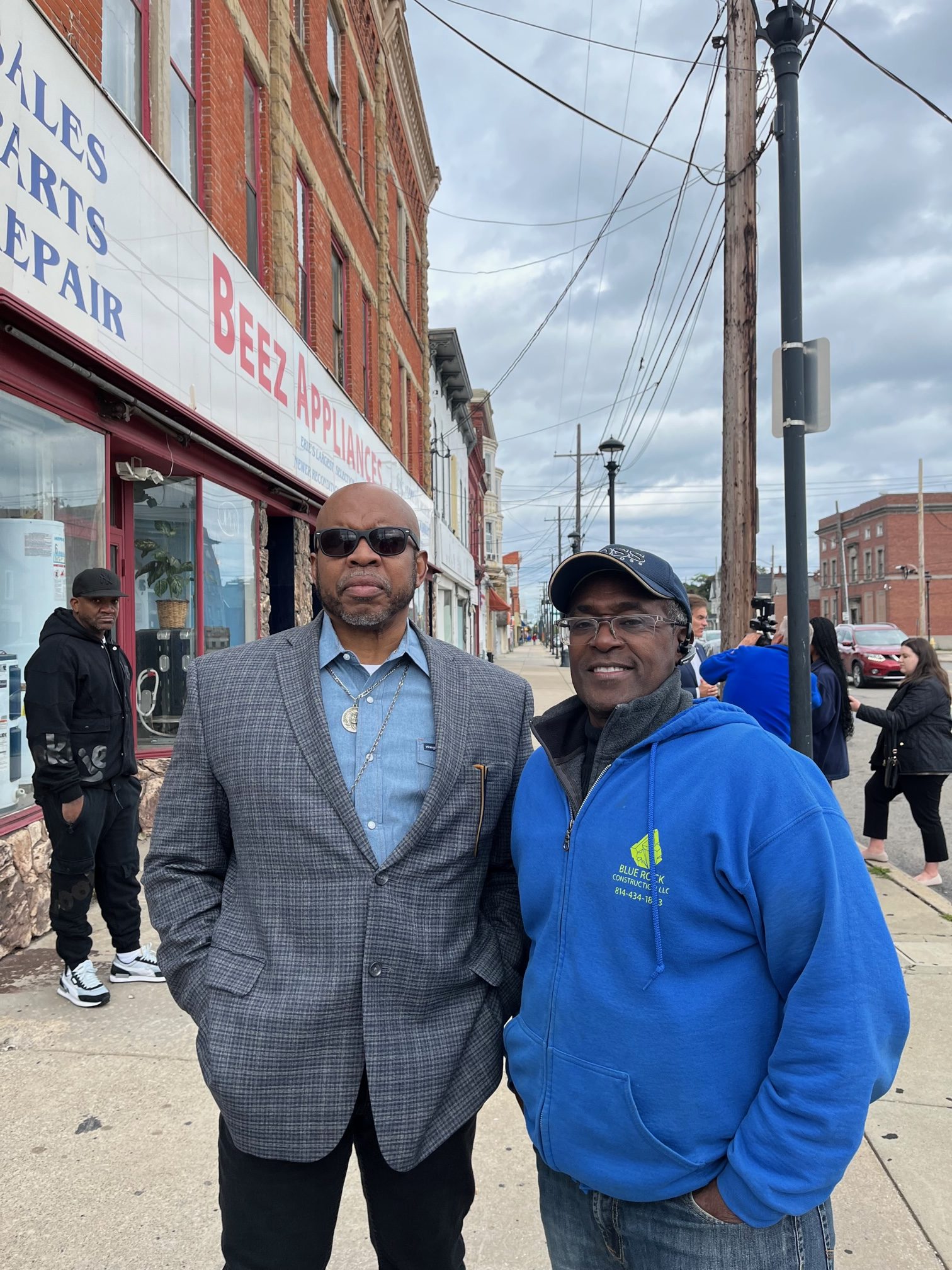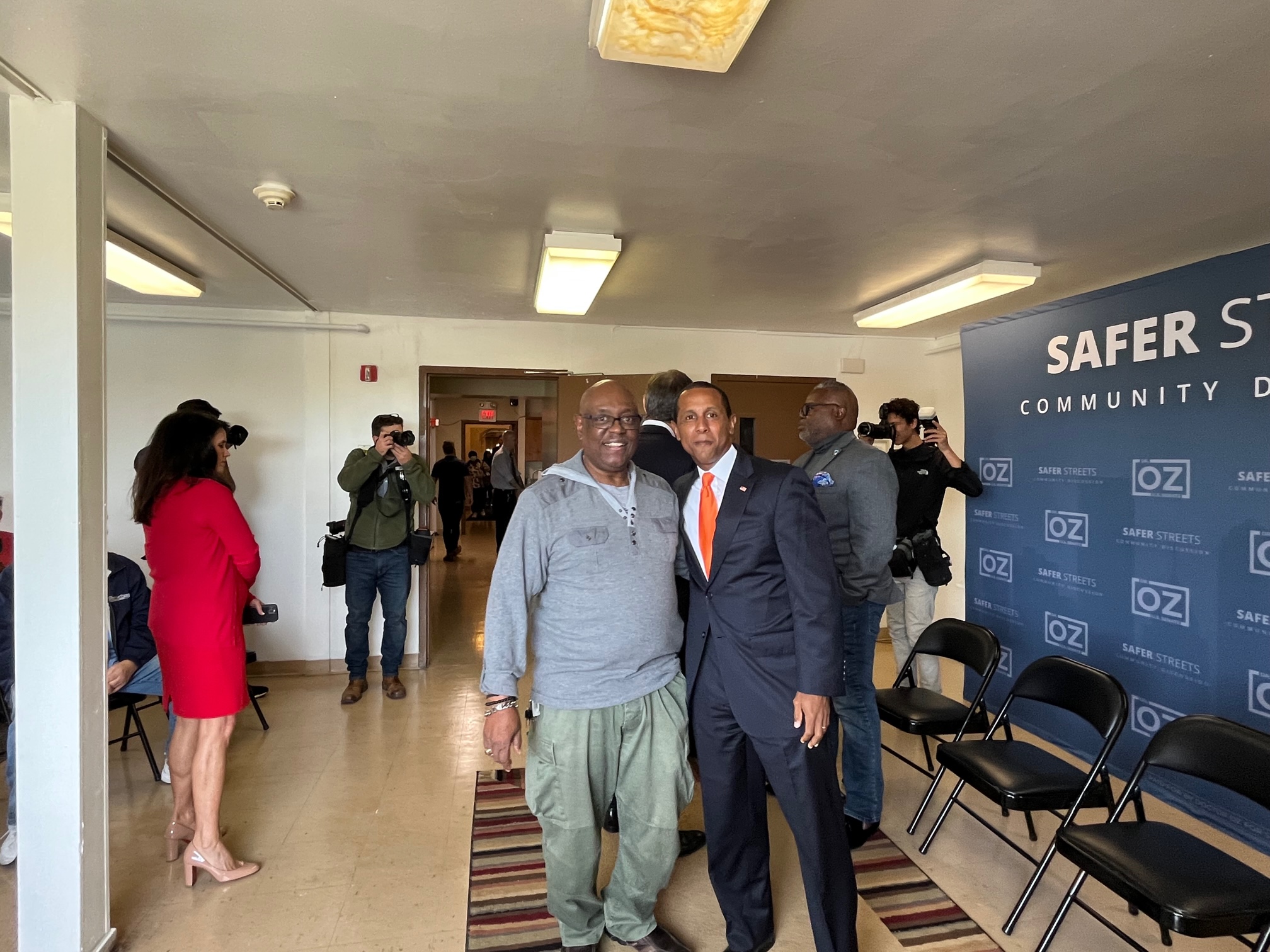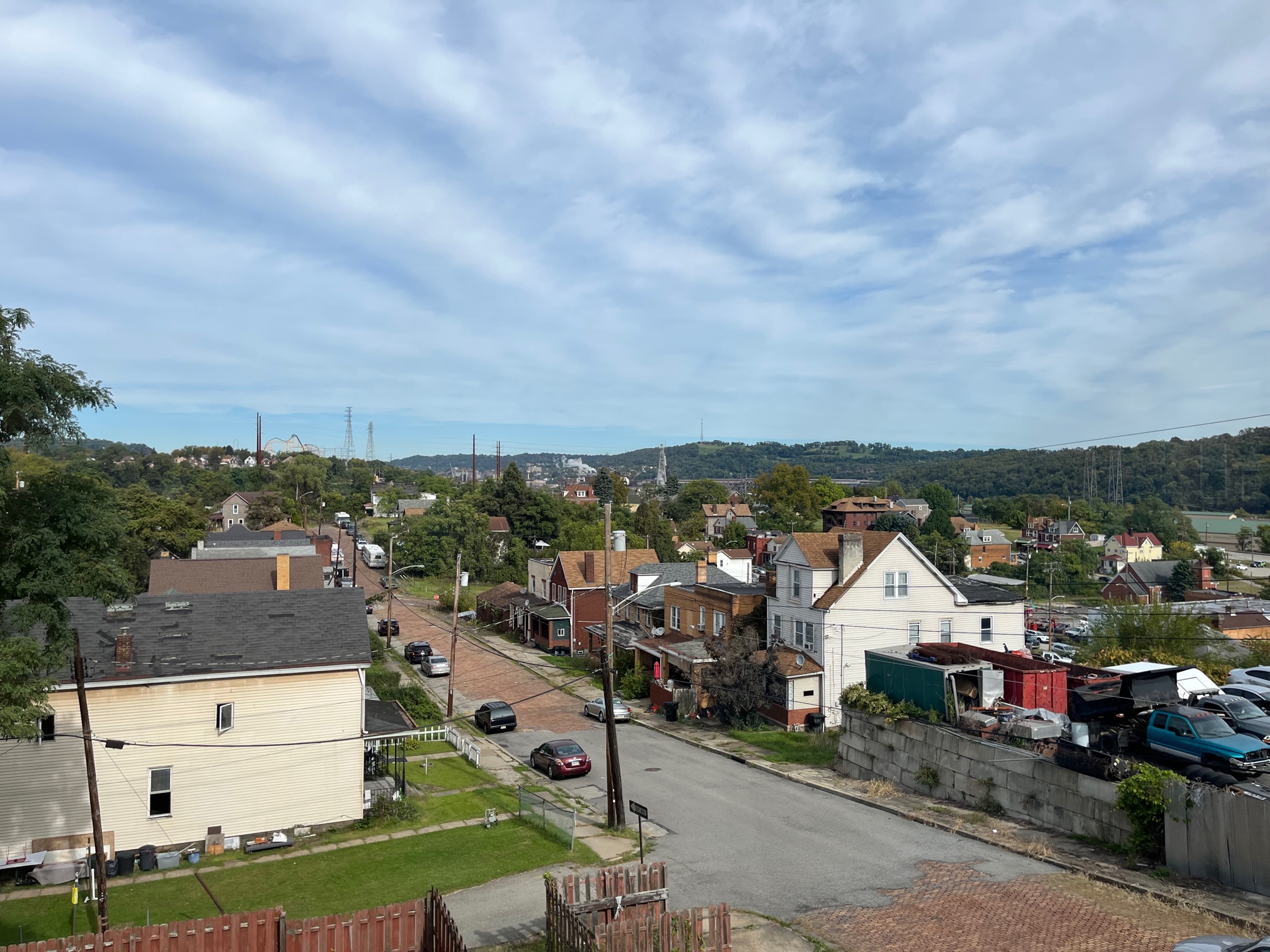ERIE, Pennsylvania — Michael Hooks was standing outside the construction site for a new bank along Parade Street in downtown Erie with Bishop Dwayne Brock and Donald Crenshaw.
It had been a long time since a small community bank had opened up here to serve the predominantly black neighborhood and once vibrant business district that now holds the distinction of being the poorest ZIP code in the state. Hooks said he is looking forward to the promise of investments in the community that a bank brings when it moves in.

Hooks, 56, would be the first to tell you that it would be a miracle he is even standing here, or anywhere, for that matter. “I probably would have gone back to jail or more than likely died on the streets had I not got my life together 23 years ago,” he explained.
INTERIOR SAYS IT IS FORCED TO HOLD CANCELED OFFSHORE OIL AND GAS LEASE SALES
Raised by a single mother who never owned a home or a car, he said he let the circumstances of his early years dictate the direction of his life. He ended up being the father of eight and in jail at the age of 23. Hooks said his outlook about who really controls their own destiny changed dramatically when Brock came to visit him and other inmates when he was in prison.
“I met him when I was incarcerated,” he said, nodding at Brock with respect. “He came in and did a presentation; he came in and told us guys that we could shut the jail down. All we had to do was get out and stay out.”
“Once I got out, we met again at the Y, working out, and we’ve been friends ever since.”
In short order, Hooks joined the ministry, earned two master’s degrees, and has not looked back for 23 years.
“People ask me how I’ve stayed out of trouble all this time; the No. 1 thing is, I start learning the process of: The world owes us nothing. We owe the world; being upset about your conditions — not having a father, my mother never had a car, a job or nothing, being poor — those are all circumstances that you can overcome if you begin to get educated,” he explained.

“Not just education of one plus one equal two or Christopher Columbus discovered America; it is real education frees you, real education to make you a business owner, a homeowner, and a contributor to your society. I became an avid reader, and I read everything. I just self-taught myself a lot of things,” he said.
The one thing he understood most importantly when he got out of prison, he said, was to shake off that chip on his shoulder that was weighing him down.
“Once I realized everything I had been fed was wrong and that society didn’t owe me anything, that I had to get out of that cycle of never getting out of that cycle of my circumstances, bust my butt, work hard, and figure out how to get myself back into the game, I became my own best resource for success,” he said.
“It was just a lot of hard work, and it still is today. Here I am, 23 years later,” he said on Parade Street, with a broad smile and infectious positive attitude.
The nonprofit group he began in 2013, Making Lives Better, grew out of an event he began hosting in 2005 called “Back to School Free Haircut Day” for children in the neighborhood whose circumstances mirrored his as a child. That year, he did 30 haircuts. By 2014, it had grown to 800 children, featuring a cookout, live music, and other activities to bring the community and families together.
Hooks does everything in trying to find ways to help young people at his nonprofit group. His mind is always working to find more ways, he said.
The facility along 10th and Parade is immaculate, the kitchen where he trains young people to cook looks like something out of a Food Network show, and his energy is boundless when it comes to teaching young people in the community to take hold of their own lives and stop resenting others or relying on the government or society to do it for them.
Bishop Brock said Parade Street has been neglected across the years. “If you take a walk down the street, you will see the crumbling facades and things of that nature. It’s buckling sidewalks; that’s not representative of who we are as a city or as a people,” he said.
Crenshaw runs Crenshaw Construction, and as Bishop Brock explained, he too is a game changer in the community. “He is doing a trade apprenticeship program of training young people to teach them construction; he will be the premier general contractor of Rebuilding Parade Street, and he’s built a multimillion-dollar complex of homes up the street there.”
Bishop Brock said Crenshaw has been a phenomenal partner to make this thing happen, which made the entrepreneur smile in embarrassment.
What all of them want to achieve is to get young people, in particular young men who lack purpose and direction and often use their intelligence to get in trouble, engaged in a better way of life.

“We’re working together with a training program, pre-apprenticeship program, where we’re taking individuals off the street as a pre-apprentice and giving them opportunities with all the trades and working with them,” said Crenshaw. “We are getting individuals in a position where they can enter into any of the trades: laborers, operators, plumbers, carpenters, welders, and so forth. We give them a trial fixing up existing abandoned dilapidated housing, as well as new construction on new units as well as renovation.”
They get the chance to graduate to become a plumber, electrician, or carpenter, and Parade Street residents benefit because their neighborhood blight is disappearing, one new business at a time.
The catalyst for all of this is faith and investment by local businesses such as Erie Insurance, a Fortune 500 company, and less dependence on government or politicians, who only seem to come here when they are running for reelection.
The violent crime rate in this Pennsylvania town has jumped from 3.1 incidents per 1,000 people to nearly four this year, nearly matching the nationwide rate of four. Property crime has risen from 14 crimes per 1,000 to 16.4 this year. And black neighborhoods tend to get the worst of it.
Here in the city of Erie, overdose incidents increased by 196%, and overdose deaths increase by 400% from 2019 to 2020. Current data from local authorities show that rate increasing still more. In the first six months of 2021, Erie experienced a 97% increase in overdose victims over the prior year; once a white working-class problem, it is now ravaging black neighborhoods as well.
It is men like Bishop Brock, Hooks, and Crenshaw, whose lives and successes are intertwined with faith, that are making their communities better. Their biggest challenges are indifference from politicians and shaking up a crime and drug wave that is robbing their community of its greatest treasure — its young people.
All three are voters who are thinking outside the box this cycle in a state where 94% of black voters supported President Joe Biden in 2020. The erosion away from Democrats this year is not expected to be massive, yet even a slight change in affiliation or abstinence from voting at all could be decisive in next month’s midterm elections.
These are men who are all in their community and whose work to rebuild it is based on purpose and aspiration. They have not heard from Democratic candidates this year; they praise Republican Senate nominee Mehmet Oz for at least showing up for hours and listening.
The problems of crime, the drug trade, and drug use in black communities have been festering for years — almost exclusively under Democratic mayors — not just here but in other cities in the state such as Pittsburgh, Philadelphia, Harrisburg, and in Mon Valley towns such as Braddock, Duquesne, Rankin, and Homestead. There has been plenty of money dumped in to change it, but few locals are involved in the changes, and little happens in the way of results.
Parade Street, said Bishop, “has been neglected. It was in other federal dollars and state dollars that came into Erie, Pennsylvania. Yet Parade Street, which is a gateway into the minority community, has been neglected historically across the years. Through our efforts, we will change that dynamic.”

